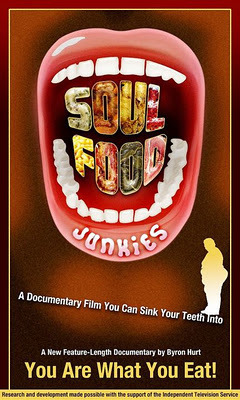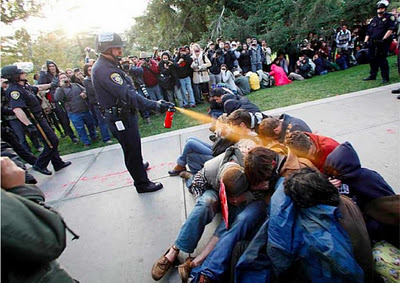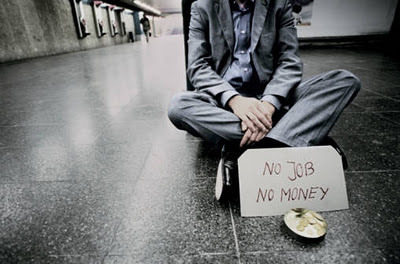Mark Anthony Neal's Blog, page 1043
November 27, 2011
ReelBlack: Filmmaker Robert Downey, Sr. Discusses his Pre-Blaxploitation Classic 'Putney Swope'
From the Reelblack Vault comes this 2008 interview with independent film pioneer Robert Downey, Sr. He discusses his early work, hits and misses, with emphasis on the cult classic PUTNEY SWOPE (1968) which costarred *check the cameo in the film from Soul Singer Ronnie Dyson
Published on November 27, 2011 06:50
November 26, 2011
9th Wonder @ The HipHop Archive (Harvard) Discussing Hip-Hop as Craft
9th Wonder (Patrick Douthit) at Harvard's Hiphop Archive (The WEB Du Bois Institute) discusses why hip-hop is a craft. The event was held on November 18, 2011 as part of the archive's Cutting Edge Series.[image error]
Published on November 26, 2011 19:08
Black Pilgrim Stirs Controversy, 30 Years On

WBUR | 96.3 | Here & Now
Black Pilgrim Stirs Controversy, 30 Years On by Kevin Sullivan
Was there a black pilgrim breaking bread with the Puritans in the 1620s?
That question caused a huge controversy in the 1980s when the Plimoth Plantation in Plymouth, Mass. hired a black actor to portray a pilgrim.
The Plantation reproduces the pilgrims' 17th century village, complete with period buildings, food and role-playing interpreters, who speak as though it were 1627.
In 1981, Bob Marten was the museum's director of programs. He said that the museum had begun receiving federal funds, and that required them to advertise as an equal opportunity employer.
An African American applied for a role playing job, and Marten hired him. He said there had been black people in Plymouth at the time of the pilgrims, so it seemed logical.
But some historians and descendants of pilgrims balked, and the museum decided if there was going to be a black pilgrim at the museum, he had to be based on a real person.
Marten said that for more than 100 years, historians had referenced a black pilgrim, named Abraham Pearse, who came to Plymouth in 1623.
Listen HERE [image error]
Published on November 26, 2011 18:57
November 25, 2011
9th Wonder @ Harvard's Hip-Hop Archive Discusses His Role in Contemporary Rap Music
9th Wonder (Patrick Douthit) at Harvard's Hiphop Archive (The WEB Du Bois Institute) discusses his role in contemporary rap music. The event was held on November 18, 2011 as part of the archive's Cutting Edge Series.[image error]
Published on November 25, 2011 05:55
November 24, 2011
November 23, 2011
Are You a Soul Food Junkie? Support Byron Hurt's Film @ Kickstarter
 "Is African American Culture a Culture of Soul Food Junkies?"
"Is African American Culture a Culture of Soul Food Junkies?"
Food traditions are hard to change, especially when they're passed on from generation to generation. In this PBS documentary, award-winning filmmaker Byron Hurt shares his journey to learn more about the African American cuisine known as soul food.
Baffled by his dad's unwillingness to change his traditional soul food diet in the face of a health crisis, Hurt sets out to learn more about this rich culinary tradition and its relevance to black cultural identity. He discovers that the love affair that his dad and his community have with soul food is deep-rooted, complex, and in some tragic cases, deadly.
Through candid interviews with soul food cooks, historians, and scholars, as well as doctors, family members, and everyday people, Soul Food Junkies blends history, humor, and heartwarming stories to place this culinary tradition under the microscope. Both the consequences and the benefits of soul food are carefully addressed. So too is the issue of low access to quality food in black communities, which makes it difficult for some black people to eat healthy. In the end, Hurt determines whether or not black people are addicted to this food tradition that has its origins in West Africa and the black south, yet is loved all over the world.
Byron Hurt is an award-winning documentary filmmaker, published writer, anti-sexist activist, and lecturer. Hurt is also the host of the Emmy-nominated series, "REEL WORKS with BYRON HURT." The Independent named him one of the "Top 10 Filmmakers to Watch" in 2011. His most popular documentary, "Hip-Hop: Beyond Beats and Rhymes" (BBR), premiered at the Sundance Film Festival and was later broadcast on the PBS series Independent Lens. In 2010, MSNBC's TheGrio.com named BBR one of the "Top 10 Most Important African-American Themed Films of the Decade." Byron's writing have been published in several anthologies and in the media he has been covered by The New York Times, O Magazine, AllHipHop.com, NPR, CNN, Access Hollywood, MTV, BET, ABC News World Tonight, and many other outlets. Byron's latest film, Soul Food Junkies, is scheduled to be released in 2012.
Support Byron Hurt's Soul Food Junkies @ Kickstarter
<p>&amp;amp;lt;br&amp;amp;gt;&amp;amp;lt;br&amp;amp;gt;By</p>
Byron Hurt on Left of Black | January 2011
Published on November 23, 2011 21:03
Left of Black S2:E11 | Has the Hip-Hop Generation Squandered Black Music's Legacy?
Left of Black S2:E11 Has theHip-Hop Generation Squandered Black Music's Legacy? w/Nicole Fleetwood and William Banfield November 21, 2011
Left ofBlackhost and Duke University Professor Mark Anthony Neal is joined via Skype©by Bill Banfield, the author of RepresentingBlack Music Culture: Then, Now, and When Again? Banfield is a composer, recording artist, musicaldirector, scholar and the Professor in the Music and Societies program at theBerklee School of Music. The Detroit native talks about growing up in the citythat bred the Motown sound, and highlights the significance of hisrelationships with communities of artists including composer T.J. Anderson. Neal and Banfieldalso contemplate why younger generations are not knowledgeable of great musicin history. Later Neal is joined by Nicole Fleetwood , Professor of American Studies at RutgersUniversity and the author of Troubling Vision: Performance, Visuality,and Blackness. Fleetwood and Neal discuss the promises and pitfalls ofblack iconic images, the photography of Charles "Teenie" Harris, and the role that her grandmotherplayed in having her consider how "blackness" is seen. Lastly, Fleetwooddiscusses the importance of a realist aesthetic in black art.
***
Left of Black is a weekly Webcasthosted by Mark Anthony Neal and produced in collaboration with the John HopeFranklin Center at DukeUniversity.
***
Episodes of Left of Black are also available for download @ iTunes U
Published on November 23, 2011 15:25
Social Media, Occupy, & Hip Hop in the Academy
Basic Black After The Broadcast: Social Media, Occupy, & Hip Hop in the Academy After the broadcast the conversation continued to explore how African Americans are using social media, the changes in hip hop culture, and the Occupy Movement.
Our panel: Callie Crossley, host of The Callie Crossley Show, 89.7 WGBH Radio; Kim McLarin, assistant professor of writing, literature and publishing, Emerson College; Phillip Martin, senior reporter, 89.7 WGBH Radio; Peniel Joseph, professor of history, Tufts University; and Mark Anthony Neal , professor of African and African American studies, Duke University and co-editor of That's The Joint: The Hip Hop Studies Reader , 2nd edition.
Published on November 23, 2011 03:01
November 22, 2011
Exceptional Brutality: Police Violence on Campus

ExceptionalBrutality by David J. Leonard and James Braxton Peterson | NewBlackMan
Like many, we have been outraged by recent episodesof police violence at UC Berkeley and UC Davis in recent weeks. The sight of police officersbrutalizing men and women with batons and pepper spray is antithetical tojustice. Yet, we have also becomeincreasingly uncomfortable with the public discourse, one that has given aninordinate amount of attention to these instances, treating them as unique andexceptional rather than indicative of systemic state-sanctioned violence. The overall tone of shock works from anidea that police violence should not happen on American college campuses. Butin the absence of a similar level of outrage resulting from police violence inurban communities throughout the United States we are left wondering about thedangers in this exceptional discourse. For example, in her otherwise powerful call for leadership, CathyDavidson asks, "How could this be happening at Davis—and at other campusestoo? Why are students who are peaceably protesting being treated likecriminals?" Rather than asking howcould this happen at college campuses, shouldn't we be asking how could thishappen anywhere? How can any person be subjected to repression, violence, andinstruments of dehumanization? A discourse that imagines police violence,whether bully-club justice or pepper spray, as proper when dealing withcriminals rather than students gives us pause because of its inability toadvance justice for all.
Similarly BobOstertag, in "Militarization Of Campus Police," furthers the denunciationof the violence at UC Davis through the systematic juxtaposition of studentsfrom real-criminals.
And regulations prohibit the use of pepper spray on inmates in allcircumstances other than the immediate threat of violence. If a prisoner isseated, by definition the use of pepper spray is prohibited. Any prison guardwho used pepper spray on a seated prisoner would face immediate disciplinaryreview for the use of excessive force. Even in the case of a prison riot inwhich inmates use extreme violence, once a prisoner sits down he or she is notconsidered to be an imminent threat. And if prison guards go into a situationwhere the use of pepper spray is considered likely, they are required to havemedical personnel nearby to treat the victims of the chemical agent.
Apparently, in the state of California felons incarcerated for violentcrimes have rights that students at public universities do not.
Beyond the establishment of a binary that situatesstudents in an oppositional relationship to felons, the logic here leads one toconclude that students are subjected to more state violence than thosesubjected to incarceration within the Prison Industrial Complex. Worse yet, if anyone should besubjected to pepper stray, it should be felons who within the nationalimagination are both undesirable and dangerous, unworthy and suspect. In yet another layer of newsmedia irony, these recent displays of brutal and inhumane police force reaffirmthe reluctance of black, brown, and poor folk to enter into the Occupy movementin the first place. The specter ofpolice brutality haunts poor, black, and brown communities. Students' experiences – with thiscommonly experienced interface between citizens and those charged withprotecting citizens – garner lead-story status while daily victims struggle tofind any modicum of public support, or media coverage, much less - justice.
The sentiment of exceptionalism is not limited to thepublic reaction to police violence at UC Davis. It was equally evident in the wake of police brutallyattacking members of Occupy Berkeley as part of their efforts to disperse thegroup and remove tents. Promptingwidespread condemnation from the ACLU and the National Lawyers Guild, fromvarious national commentators including Stephen Colbert, the police violenceagainst Berkeley students elicited a disproportionate level of attention. In our estimation, the attention andthe rhetorical tone reflects the presumed exceptionalism of these instances andthe presumed innocence and humanity reserved for students.
We wonder also how these peaceful demonstrations –violently policed – compare to those violent 'demonstrations' moderatelypoliced at Penn State University. Somehow students violently demonstrating in support of a footballprogram in an academic institution that is allegedly complicit in the rape andsexual abuse of children, warrant greater consideration than students peaceablydemonstrating in solidarity with OWS and in support of their own challengeswith the rising costs of college tuition. Something simply is not right here. The police acting on behalf of the state/institution is nowcommonplace praxis in the 21st century. But the synthesis of these recent actions with certainideological positions and the media's depiction and coverage of these eventspaints a sinister portrait of police institutions. KRS ONE's critical question,– "Who Protects Us from You?" –directed at the boys in blue circa 1989 – remains eerily unanswered.
The media coverage and theoutrage, while warranted, illustrates how police violence against students –middle-class and overwhelmingly white – prompts outrage while elicitingaccountability, whereas the daily violence against the poor, againstcommunities of color, often goes unnoticed and unchecked. "Not to diminish what happened at UC Davis, but it's worth consideringwhat happens in poor neighborhoods and prisons, far from the cameras. I'm notsaying that to diminish this video in anyway," writes Ta-Nishi Coates in "TheCops we deserve." "But I'd like people to see this as part of a broadsystemic attitude we've adopted as a country toward law enforcement. There's adirect line from this officer invoking his privilege to brutalizethese students, and an officer invoking his privilege to detain HenryLouis Gates for sassing him."
Intreating violence on college campuses, and that directed at student protestorsas exceptional and therefore deserving national attention, the conversationinadvertently normalizes and erases the much more commonplace violenceexperienced by black and brown youth in communities throughout the UnitedStates. Worse yet, the emphasis onthe students as undeserving in comparison to those "real criminals" advances aJim Crow system of justice where the systemic level of state violence besiegingAmerica's poor and communities of color is rendered as justifiable. "Bridging communities is difficult, writes Erinn Carter.Yet "Connecting the day-to-day struggles of communities of color to theimmediate violence of police brutality is something that groups must do if theyare going to garner the support of the community." What happened at Davis and Berkeley is what happens incommunities across America, where black and brown youth, where America's poor,are subjected to the power of the state, a militarized police that holds incheck those populations that are deemed surplus, undesirable, and suspect inthe national imagination.
***
David J.Leonard is Associate Professor inthe Department of Critical Culture, Gender and Race Studies at Washington StateUniversity, Pullman. He has written on sport, video games, film, and socialmovements, appearing in both popular and academic mediums. His work exploresthe political economy of popular culture, examining the interplay betweenracism, state violence, and popular representations through contextual,textual, and subtextual analysis. He is the author of Screens Fade to Black:Contemporary African American Cinema and the forthcoming After Artest: Race and the War on Hoop (SUNY Press). Leonard is aregular contributor to NewBlackManand blogs @ No Tsuris.
JamesBraxton Peterson is director ofAfricana Studies and associate professor of English, Lehigh University.Peterson's academic work focuses on Africana studies, narrative, graphicnovels, and hip-hop culture. He is the founder of Hip Hop Scholars, LLC, anassociation of hip-hop generational scholars dedicated to researching anddeveloping the cultural and educational potential of hip-hop, urban, and youthcultures. Peterson is a regular contributor to The Root.com and he has appearedon Fox News, CBS, MSNBC, ABC News, ESPN, and various local television networksas an expert on hip-hop culture, popular culture, urban youth, and politics.
Published on November 22, 2011 18:59
November 21, 2011
It's Time to Form "99 Percent Clubs" in Your School or Neighborhood

It's Time to Form "99Percent Clubs" in Your School or Neighborhood byMark Naison |special to NewBlackMan
Ifyou part of a large and growing number of Americans who support the Occupy movement,but may or may not be able to "Occupy" yourself, you might want toform a 99 Percent Club at your school, your workplace or in your neighborhood,to organize financial, legal and political support for the Occupymovement and educate people in your community about what it stands for.
Theidea for these 99 Percent Clubs came from renowned educator Ira Shor andthey are modeled on the "Friends of SNCC" organization that mobilized supportfor the non violent Southern civil rights movement in the early 1960's. Giventhat the Occupy movement is under assault from elected officials and universitypresidents around the country, and that people in this movement, like theircounterparts in the southern civil rights movement, face arrest and beatings, alongwith more modern police weaponry such as pepper spray and rubber bullets, it is definitely time to create a support group to raise funds andeducate the public about these brave activists.
A99 Percent Club is one vehicle that can do just that. We have called fora first meeting of such a club at Fordham and the response, from students,alumni, and staff has been overwhelming. Our Fordham group does not havea program- just a commitment to support the Occupations. So far, nearly 30people are committed to attend.
OccupyWall Street and its counterparts around the nation have put the questions ofeconomic inequality on the nation's agenda for the first time since the 1960's.And the response from policy makers has been ferocious as that of southernsegregationists confronting a challenge to their way of life.
It'stime for Americans who support the goals of the Occupy Movement to mobilize inbehalf of popular democracy and economic justice, even if they don't feel theycan participate in the movement directly. Forming 99 Percent Clubs is one wayto do so.
Ifyou would like to start a 99 Percent Club in your area, please email Ira Shorat irashor@comcast.net with a cc to me at Naison@fordham.edu.
***
Mark Naison is a Professor ofAfrican-American Studies and History at Fordham University and Director ofFordham's Urban Studies Program. He is the author of two books, Communists in Harlem During the Depressionand White Boy: A Memoir. Naison isalso co-director of the Bronx African American History Project(BAAHP). Research from the BAAHP will be published in a forthcoming collectionof oral histories Before the Fires: AnOral History of African American Life From the 1930's to the 1960's.
Published on November 21, 2011 18:04
Mark Anthony Neal's Blog
- Mark Anthony Neal's profile
- 30 followers
Mark Anthony Neal isn't a Goodreads Author
(yet),
but they
do have a blog,
so here are some recent posts imported from
their feed.



